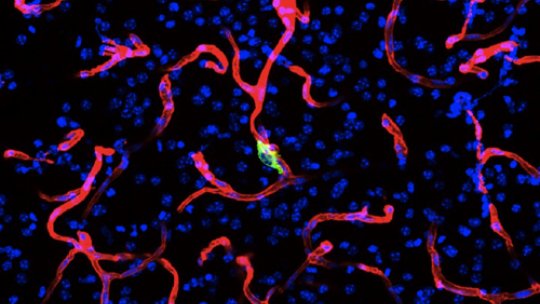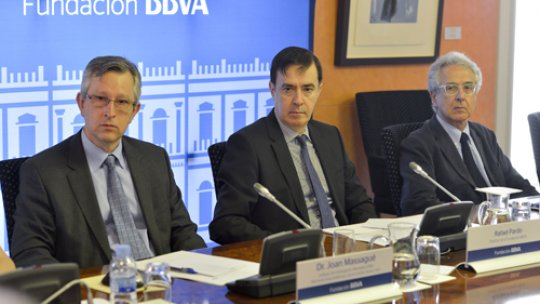Images
Contact

- Like sleeper agents, the cells that give rise to metastasis can dodge the defences of the body for years and produce a new tumour upon reactivation. Metastases account for 90% of the deaths caused by cancer.
- The BBVA Foundation-IRB Oncology Research Programme, which has been running since 2006 and is now being renewed, has allowed the identification of new metastatic markers, which are currently being used to search for therapeutic targets.
In John Le Carré’s world of espionage, the sleeper agents were the worst threat: they were lone, inactive spies that passed under the radar for years waiting for orders to move into action. In the context of cancer, metastatic cells carry out this same role. They manage to survive surgery and treatment to then attack other organs months and even years after the appearance of the first tumour. The challenge faced by researchers is to identify these cells and to reveal their survival mechanisms and also the mechanisms that lead to their sudden activation.
“Metastasis, the latent enemy” is the title that Joan Massagué, director of the Department of Cancer Genetics and Cell Biology of the Memorial Sloan-Kettering Cancer Center, in New York (US), and adjunct director of the Institute for Research in Biomedicine (IRB Barcelona), in Barcelona, has chosen for his conference, which will be given at the head offices of the BBVA Foundation in Madrid. On the occasion of the renewal of the agreement between the BBVA Foundation and IRB Barcelona for the development of the joint Oncology Research Programme, Massagué has explained the work carried out in this collaboration since 2006 and the current research lines being followed.
Ninety percent of the deaths caused by cancer are due to the metastasis of a primary turmour to a vital organ. Massagué is currently addressing the phenomenon of latency, that is to say, how the tumour cells that cause the metastasis lie as sleeper agents, even for years at a time. Massagué and his team have already identified some of the genes involved in this process. His findings brought him the 2008 BBVA Foundation Frontiers of Knowledge Award in Biomedicine for “elucidating the fundamental processes that control cell division, namely the mechanism that transmits the inhibitory growth signal of TGF-beta from the cell membrane to the nucleus,” as explained by the jury.
Prior to the conference, Massagué attended a session with journalists, which also involved the directors of the BBVA Foundation, Rafael Pardo, and IRB Barcelona, Joan Guinovart, who announced the renewal of the collaboration agreements between the two organisations and the incorporation of the BBVA Foundation onto IRB’s Board of Trustees. Rafael Pardo emphasized how this agreement is in keeping with the activity undertaken by the foundation in support of biomedical research of excellence and the opportunity generated for IRB and its scientific community to share knowledge and experience with Massagué’s team in New York, as, in addition to the research programme, the agreement includes training exchanges of personnel and dissemination activities.
Guinovart, in turn, stated, “At a critical time for research, it is highly relevant that the BBVA Foundation renews its commitment to IRB Barcelona and continues to support quality research. Since 2006, our collaboration agreement has been very fruitful and it provides us with reassurance and confidence for the coming years.” In reference to the BBVA Foundation joining the Board of Trustees of the institute, he added, “This marks a further step in the commitments to our centre and allows us to introduce the know-how of the private sector into a public sector organisation.”
More information: FBBVA press release (in Spanish)
About IRB Barcelona
The Institute for Research in Biomedicine (IRB Barcelona) pursues a society free of disease. To this end, it conducts multidisciplinary research of excellence to cure cancer and other diseases linked to ageing. It establishes technology transfer agreements with the pharmaceutical industry and major hospitals to bring research results closer to society, and organises a range of science outreach activities to engage the public in an open dialogue. IRB Barcelona is an international centre that hosts 400 researchers and more than 30 nationalities. Recognised as a Severo Ochoa Centre of Excellence since 2011, IRB Barcelona is a CERCA centre and member of the Barcelona Institute of Science and Technology (BIST).





